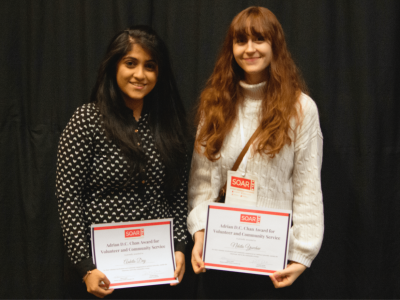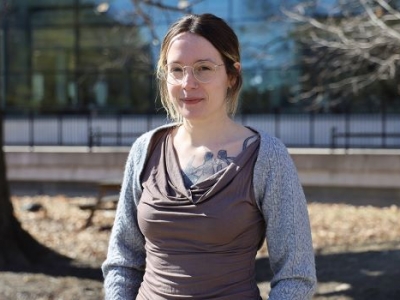Promoting your graduate research can be a rewarding experience.
Depending on whether you are in the social sciences and humanities or in science and engineering, there are different reasons and ways to go about it.
There are many benefits to promoting your research:
- This can help you network with others who are pursuing similar or related research
- It can help you meet like-minded graduate students and help you create your own support network on campus.
- You can share ideas and get feedback on your work.
- Promoting your research can result in published articles or presentations which can then add valuable content to your CV/Resumé. This, in turn, can help you get ahead in your career.
- By sharing your knowledge, you gain credibility and can become an established expert in your field which could help position you for media or career success.
- Your research can typically add value to existing information in your field which could then help others.
- In some cases, your research could end up influencing policy-makers or even politicians.
How can you get the word out about your research? Again, there may be differences depending on your discipline. Students working on NSERC-funded projects often work as part of an overall team and, therefore, it is essential for grad students to check with their supervisor to ensure that the most effective messages and methods of communicating are used.
Here are some ideas to consider:
- It’s important to keep your supervisor in the loop. In fact, why not ask your supervisor for suggestions on which conferences would be best for you to attend and where to submit papers for presentation at professional meetings. When you do attend a conference, introduce yourself to the leading people in your field.
- Getting published in a reputable journal is ideal and sometimes a requirement (depending on your program) but can take a very long time to happen. Typically, you will need to write multiple drafts. Don’t be discouraged if your first attempts at publication don’t work out. In fact, in the world of publishing, rejection can be par for the course.
- Social media can help you make your research accessible to thousands of people within a short period of time. Why not shoot a short (1-minute) piece in which you talk about your research and the impact it could have? Then, post it on YouTube. You can check out videos of other grad students talking about their research by going to our FGPA video web page.
- Twitter, Facebook, Instagram and Linked In are other great social media platforms where you can talk about your research. Re. Twitter, use relevant hashtags to engage in conversations with others. @CUGradStudies often retweets about grad student research. Re. Linked In, join relevant groups/networks.
- Start blogging about your research. You could talk about your actual research findings, comment on recent media coverage that might relate to your research, talk about conferences or events you have attended or a paper you have published or discuss the process of actually doing your research.
- TheGraduate@Carleton is always looking for great grad student research to feature in future newsletters. Just email fgpa_newsletter@carleton.ca with your suggestions. As these stories are often posted on departmental websites, the university home page and elsewhere, they can garner a lot of attention.
- Attend a Media Communications workshop, presented by University Communications (DUC), to enhance your presentation skills when talking with the media. In some cases, DUC may want to promote you and your research to the media.
- Present your research to other students and faculty by participating in grad student research colloquia. Many of these are featured on our Grad Research Link page.
- Identify and join the main scholarly associations in your discipline. Many of these groups have resources that can assist you in developing ideas around your own research or have platforms where you can submit articles about your research.
- Participate in the Three Minute Thesis Competition. The Carleton 3MT typically happens in early March. More details will be available shortly. DUC offers 3MT training sessions.
- Students conducting SSRHC-funded research might consider entering the annual Storyteller Challenge. SSHRC chooses 25 winners who all receive $3,000. DUC also offers training to grad students entering this challenge. Training details will be available in the near future in TheGraduate@Carleton newsletter and on our website.
- Don’t forget to check out the various research-related awards. Click here to go to our Awards and Funding Pages.
If you have more ideas about how to promote your research, please let us know (fgpa_newsletter@carleton.ca or leave a comment below).
Monday, September 17, 2018 in Grad Student Research, News
Share: Twitter, Facebook




